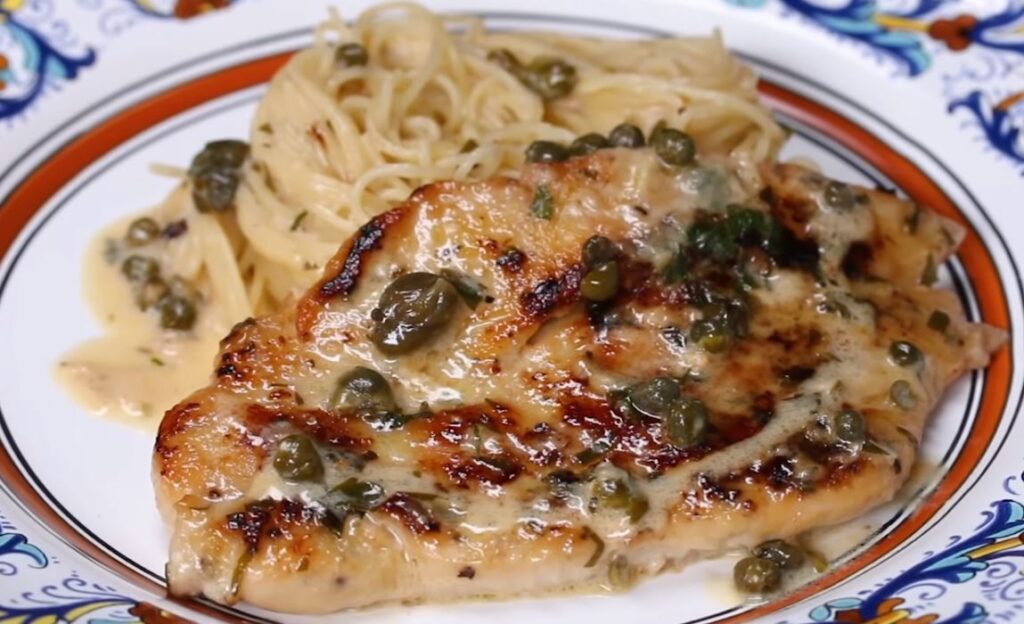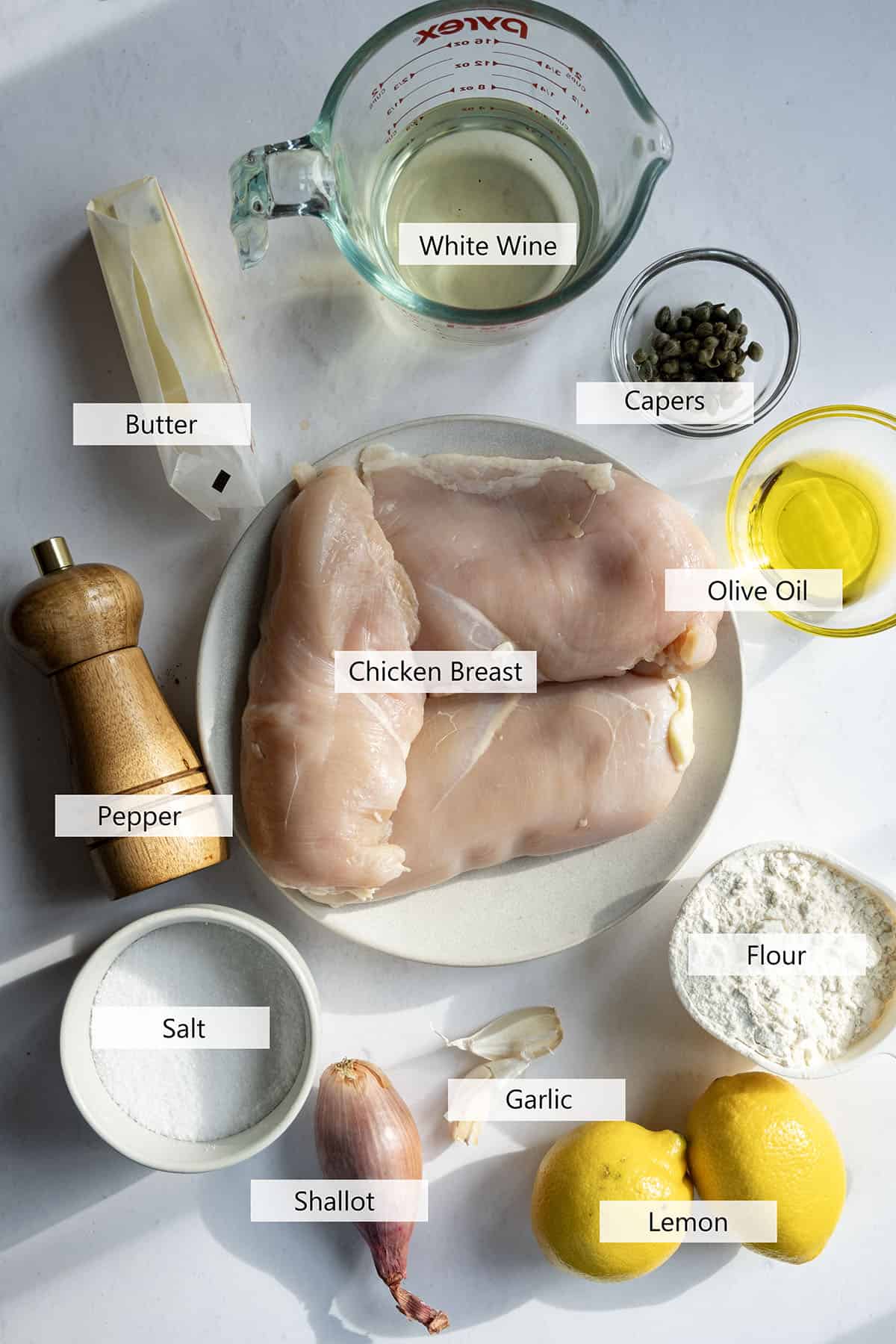Chicken piccata is a bright, lemony Italian dish that is meant to taste tangy yet balanced, not bitter. However, it’s not uncommon for homemade chicken piccata to turn out unpleasantly bitter.
So what causes bitter chicken piccata, and how can you fix it? Let’s break it down.
What Ingredients Can Cause Bitterness in Chicken Piccata?
Chicken piccata relies on a few key ingredients to give it that signature flavor profile Used properly, these ingredients provide acidity, saltiness, and richness But minor mistakes with any of them could ruin the flavor of the whole dish
Lemon Juice
Lemon juice is essential for the tangy flavor of piccata But too much lemon juice, or juice that’s too sour, leads to unpleasant bitterness
To avoid this, taste the juice as you add it to the pan, and start with just a tablespoon or two. Freshly squeezed juice from ripe lemons is ideal Bottled lemon juice can taste artificial
Capers
Brined capers lend the right amount of saltiness to balance chicken piccata’s acidity. But capers can quickly become bitter if overcooked or if too many are used.
Rinse capers before adding them to the pan so they aren’t overly salty. Then add them at the very end of cooking.
White Wine
A splash of white wine adds flavor complexity. But reducing the wine too far intensifies its acidic qualities, resulting in bitterness.
Simmer the wine just until it’s reduced by half, then take it off the heat. Avoid cooking it down to a syrupy consistency.
How Does Cooking Technique Impact Bitterness?
Aside from ingredients, improper cooking is a prime reason for bitter chicken piccata. Here are some key mistakes to avoid:
Overcooking the Chicken
Chicken dries out and toughens when cooked too long. This enhances any bitter flavors from the lemon juice and capers.
Use a meat thermometer to cook chicken to 165°F without going over. Also, cut the chicken into thin, even pieces so it cooks quickly.
Cooking Acidic Ingredients Too Long
Lemon juice, wine, and capers all contain acids that concentrate and intensify when cooked extensively. This accentuates bitterness.
Add lemon juice at the end of cooking and cook capers and wine gently for just 2-3 minutes.
Letting the Chicken Sit in the Sauce
Allowing cooked chicken to sit in the acidic sauce causes it to over-marinate and take on a sour, bitter taste.
Remove chicken from the skillet as soon as it’s cooked through. Only add it back to the sauce just before serving.
Quick Fixes for Bitter Chicken Piccata
If your chicken piccata still turns out bitter, there are a few tricks that can balance out the flavors:
-
Add a teaspoon of honey or sugar to counteract bitterness.
-
Increase the amount of butter or olive oil to coat the tongue and mute sour flavors.
-
Sprinkle in a little salt to mask bitterness. But go easy, as too much salt can make things worse.
-
Finish the dish with a handful of chopped parsley or basil. Their fresh, aromatic qualities help alleviate bitterness.
-
Serve chicken piccata with starchy sides like pasta, rice, or mashed potatoes. The starches cling to bitter compounds on the tongue.
Preventing Bitter Chicken Piccata in the Future
Now that you know what causes bitter chicken piccata and how to fix it, you can take steps to avoid the problem altogether going forward:
-
Use fresh, peak-ripeness lemons and taste the juice before cooking.
-
Rinse capers thoroughly and add them at the very end.
-
Cook wine just until slightly reduced, about 5 minutes.
-
Monitor chicken closely and remove it as soon as it reaches 165°F.
-
Add chicken back to the skillet just before serving.
-
Balance tart ingredients with sweeteners, olive oil, or herbs.
With the right techniques and a little forethought, you can keep your chicken piccata tasting bright, lemony, and perfectly balanced every time you make it. A pinch of sugar and a watchful eye is all it takes to steer clear of any unwanted bitterness.

Ingredient Notes and Substitutions

- Chicken Breast. Always inspect your chicken breast when purchasing. Look to see if the chicken looks like it is peeling apart or poorly colored. You could substitute well-tenderized boneless chicken thighs here if you wanted.
- Shallot. Substitute finely minced onion if you like but the delicate flavor of shallot is definitely preferred.
- White wine. I prefer a sauvignon blanc or pinot grigio for cooking. You can substitute equal parts chicken broth if necessary.
- Capers. You can leave out the capers if you dont like them, but to be honest they make the dish. It wouldnt be chicken piccata without capers. It would just be a Chicken Breast in Lemon Butter Sauce.
- Garlic. Finely minced garlic for a bit more flavor with the shallot is perfect for this dish.
- Lemon. Dont substitute lemon concentrate or artificial lemon flavor. It wont have the same effect. The natural sugars in the lemon help to thicken and intensify the flavor of the sauce.
*Please see more information about the ingredients in the recipe card below.
What to Serve with Chicken Piccata
Chicken piccata is a great main dish that can be served with so many delicious sides.
Chicken Piccata | Dinner at Five; Cook with Me
FAQ
Why does my chicken piccata taste bitter?
If you allow lemon pips to slip into the sauce when squeezing, or overdo it with the lemon rind, you might get a bitter sauce.Oct 22, 2024
Why is my lemon chicken bitter?
Whole lemon slices include the pith, the spongy white part of the lemon, which tends to be bitter in flavor. With thinner lemon slices, the juices of the cooking chicken can soak into the pith quicker, leaving it infused with flavor rather than raw and bitter.
How should chicken piccata taste?
Crispy chicken infused with a rich and flavourful sauce – it’s kind of like chicken schnitzel but ten times better. The lemony garlic and thyme-infused sauce adds a nice balance of flavour while capers really make it pop with their briny tanginess.
Why is my chicken broth bitter?
The longer the bones and meat cook, the more the proteases break the bonds connecting the proteins, and the more amino acids get detached (source). It just so happens that we taste many of these amino acids and protein fragments as bitter. Once we reach this point, there’s no going back.
